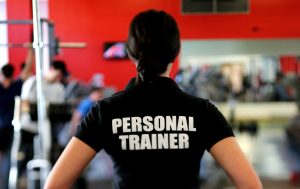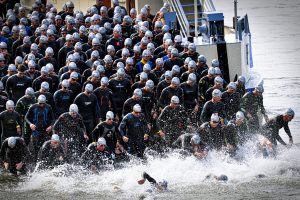Mastering Triathlon Nutrition: Fuelling for Success
Nutrition is one of the most critical aspects of triathlon training and racing. How you fuel your body directly impacts your endurance, energy levels, and recovery, and it can be the difference between a strong finish or hitting the wall mid-race. This post will guide you through triathlon nutrition essentials, including how to determine your fueling needs, train with nutrition, and ensure optimal recovery after training and races.
The Basics of Triathlon Nutrition
Every triathlete’s nutritional needs are unique, depending on factors such as body weight, age, fitness level, and race distance. However, there are general guidelines for fueling effectively across triathlon training, from daily nutrition to pre-race and race-day fueling strategies. Here are the key components to understand:
- Carbohydrates: Your body’s primary fuel source for endurance events. Carbs provide quick energy for intense efforts, so it’s essential to consume enough to avoid energy crashes.
- Protein: Essential for muscle repair and recovery. Protein also supports immune function, which can be stressed during intense training.
- Fats: A long-term energy source that helps sustain endurance over longer races and provides essential fatty acids for overall health.
- Hydration: Staying hydrated helps maintain blood volume, regulate body temperature, and transport nutrients to muscles.
Determining Your Fueling Needs
To fuel properly, it’s essential to calculate your calorie, carbohydrate, protein, and hydration needs based on your training intensity, body weight, and race distance. Here’s a breakdown of each nutrient and how to determine your needs:
1. Carbohydrate Requirements
Carbohydrates provide the fuel needed for both training and racing. The amount of carbohydrates needed varies based on your training load and race distance.
- Daily Needs: For most triathletes, 3-6 grams of carbs per kilogram of body weight per day is adequate. For heavy training or long-distance triathlons, increase to 7-10 grams per kilogram.
- Race and Long Training Sessions: Aim for 60-90 grams of carbs per hour for events lasting over two hours. Practice this during training to ensure your body can absorb this amount without digestive distress.
Example Calculation: A 70kg triathlete in moderate training might consume 350g of carbs daily (5g x 70kg). For a race or long ride, they’d aim for 60-90g of carbs per hour.
2. Protein Requirements
Protein is vital for recovery and muscle repair, especially during intense training blocks.
- Daily Needs: Aim for 1.2-2.0 grams of protein per kilogram of body weight. If you’re doing heavy strength work or are in a high-volume training phase, lean towards the upper range.
- Post-Workout: After training sessions, aim for 20-30 grams of protein to support muscle repair.
Example Calculation: A 70kg athlete in intense training might consume 105g of protein daily (1.5g x 70kg) spread throughout meals and snacks.
3. Fat Requirements
Fats provide essential nutrients and are a steady energy source for lower-intensity efforts.
- Daily Needs: Aim for 20-30% of your daily calories from fat. For a 2,500-calorie diet, this equals around 55-85g of fat.
- Endurance Events: While fats are not usually consumed mid-race, they support daily energy needs, hormone production, and recovery.
4. Hydration Needs
Hydration is essential for optimal performance. Dehydration leads to fatigue, reduced mental focus, and increased heart rate. Calculate hydration needs based on sweat rate, body weight, and climate.
- Daily Needs: Aim for about 30-40ml per kilogram of body weight daily.
- During Training and Racing: Hydrate with 400-800ml of fluid per hour during training and races, adjusted based on temperature and sweat rate.
Example Calculation: A 70kg athlete would aim for roughly 2.1-2.8L of fluid per day (30-40ml x 70kg), plus additional fluids during workouts.
Race-Specific Nutrition: Pre-Race, Race-Day, and Recovery
Preparing your body nutritionally for race day is crucial. Here’s a breakdown of how to structure your nutrition leading up to and during race day, including recovery.
Pre-Race Nutrition
- Two to Three Days Before the Race: Focus on carbohydrate loading. Increase carbs to 8-10g per kg of body weight daily to maximize glycogen stores.
- Day Before the Race: Eat balanced, familiar meals. Avoid high-fat, high-fiber foods that can cause digestive issues.
- Morning of the Race: Aim for a high-carb, moderate-protein, low-fat meal 2-3 hours before the race. Include around 1-2g of carbs per kg of body weight.
Example Pre-Race Breakfast: Oatmeal with a banana, honey, and a small handful of nuts for sustained energy.
Race-Day Nutrition
Sprint and Olympic Distances: Shorter races may not require extensive mid-race fueling, but hydration and quick-digesting carbs can boost performance.
- Hydration: Start well-hydrated and consume 200-300ml every 15-20 minutes during the race.
- Fueling: For Olympic distance, aim for 30-60g of carbs per hour, using gels, chews, or sports drinks.
Half-Ironman and Ironman Distances: For long-distance races, a comprehensive nutrition strategy is crucial.
- Hydration: Drink consistently, targeting around 500-800ml per hour.
- Fueling: Aim for 60-90g of carbs per hour through a combination of sports drinks, gels, and solid foods. Alternate between carb sources (e.g., glucose, fructose) to maximize absorption and avoid GI distress.
- Salt/Electrolytes: For races in hot climates or for heavy sweaters, include electrolytes in your drinks or via salt tablets.
Recovery Nutrition
Recovery nutrition helps replenish glycogen stores, repair muscle damage, and prepare your body for future training sessions.
The 3 R’s of Recovery Nutrition:
- Rehydrate: Replenish fluids lost during the race. Weigh yourself before and after to determine how much water weight was lost, and drink 1.5 times that amount.
- Refuel: Consume 1-1.2g of carbs per kg of body weight within the first hour post-race.
- Repair: Aim for 20-30g of protein post-race to kickstart muscle repair.
Example Post-Race Meal: A smoothie with protein powder, berries, banana, and almond milk or a sandwich with lean protein, veggies, and a side of fruit.
Training with Nutrition
Training with race-day nutrition is essential for ensuring your body can handle the fueling strategy you plan to use. Testing nutrition during training will help you identify what works best for you, as everyone’s digestive system and energy needs differ.
1. Practice Mid-Workout Fueling
Incorporate the gels, drinks, and foods you plan to use on race day into your long runs and bike rides. Start with smaller amounts and gradually increase to full race-day intake. This process helps your gut adapt and reduces the chance of GI distress on race day.
Sample Workout Fueling for Long Rides:
- 30-60 minutes: Consume 30-45g of carbs (e.g., 1-2 energy gels) with 400ml of water.
- 60-90 minutes: Add another 30g of carbs, such as a banana or sports drink, to sustain energy.
- Post-Workout: Hydrate and consume a balanced meal within an hour.
2. Simulate Race Conditions
Incorporate brick workouts (bike-to-run sessions) with your nutrition to mimic race conditions. Practice eating and drinking while transitioning from cycling to running to get comfortable with the fueling process in a similar physical state to race day.
3. Adjust for Different Types of Workouts
Different workouts require different fueling approaches:
- Short/Intense Workouts: Focus on hydration and light carbs for energy.
- Endurance Workouts: Prioritize carb intake with around 30-60g of carbs per hour.
- Strength Training: Carbs provide energy, but protein is essential for muscle repair. A pre- and post-workout snack with protein and carbs, such as a protein shake with fruit, can support recovery.
Common Nutrition Challenges and Solutions
Race day can be challenging for many triathletes, especially when it comes to nutrition. Here’s how to troubleshoot common problems:
1. GI Distress: GI distress can be caused by consuming too much at once or using products that are hard to digest.
- Solution: Use small amounts of nutrition frequently, such as 15-20g of carbs every 20 minutes. Avoid high-fiber or unfamiliar foods before the race.
2. Bonking (Energy Crash): Running out of energy mid-race usually results from inadequate carb intake.
- Solution: Start fueling within the first 30 minutes of the race and aim for 60-90g of carbs per hour for long races. Use a mix of gels, bars, and drinks to prevent an energy crash.
3. Dehydration or Overhydration: Both dehydration and drinking too much can impact performance.
- Solution: Calculate your sweat rate during training, and drink around 500-800ml per hour, adjusting for hot conditions or heavy sweating.
Long-Term Nutrition for Health and Performance
While race-day nutrition is crucial, daily nutrition forms the foundation of a healthy, strong athlete. Consuming a balanced diet rich in whole foods, colorful vegetables, lean proteins, whole grains, and healthy fats supports overall performance and recovery. Here’s how to make the most of your daily nutrition:
- Protein with Each Meal: Supports muscle repair and keeps you feeling full.
- Complex Carbohydrates: Whole grains, fruits, and vegetables provide long-lasting energy.
- Healthy Fats: Avocado, nuts, and fish offer essential fatty acids for brain function and inflammation reduction.
Preparing Your Nutrition Plan
- Calculate Needs Based on Race Distance: Set your carbohydrate, protein, and fluid intake goals according to race distance.
- Create a Race-Day Nutrition Schedule: Plan when to eat and drink during each leg of the triathlon. Write down what you’ll consume and when.
- Practice in Training: Use your planned race nutrition during training sessions to ensure your body can handle it.
- Adjust as Needed: Don’t be afraid to make adjustments based on how you feel. The best nutrition plan is one that works for your body.
Fueling Your Triathlon Journey
Nutrition is a powerful tool that helps triathletes unlock peak performance, optimize recovery, and enjoy every part of the race experience. By understanding your body’s needs and practicing your fuelling strategy, you’ll be ready to conquer each leg of your triathlon with confidence. At TriReady, we’re here to support you with tips, resources, and a community that will fuel your success. Embrace the journey, fuel smart, and you’ll cross the finish line feeling strong and accomplished!



